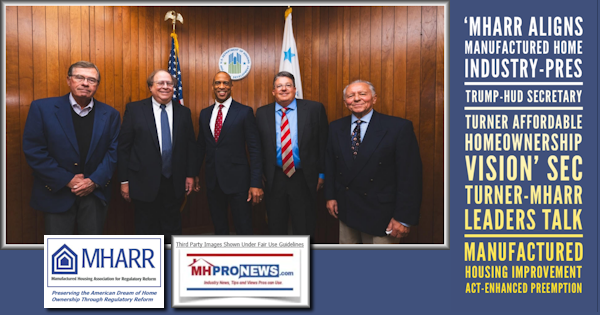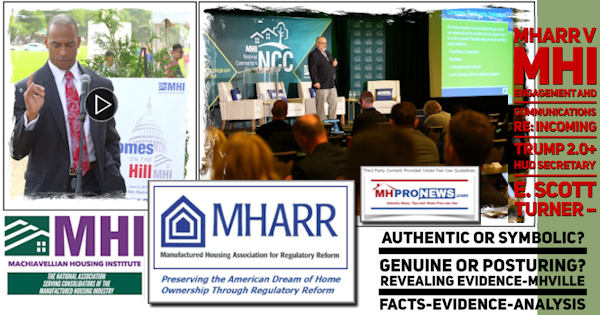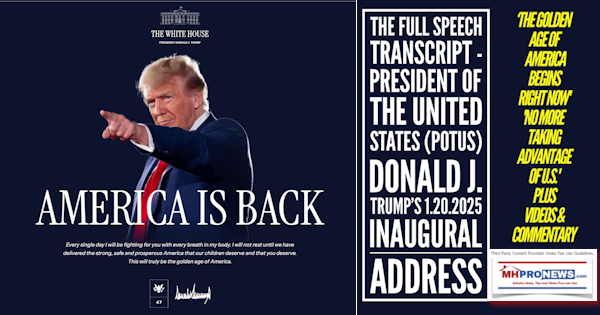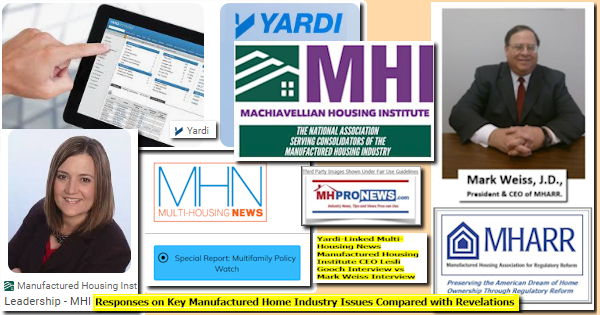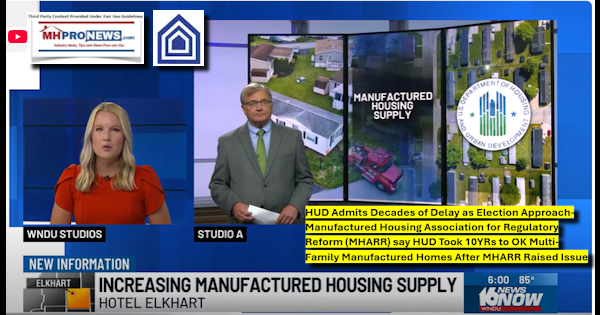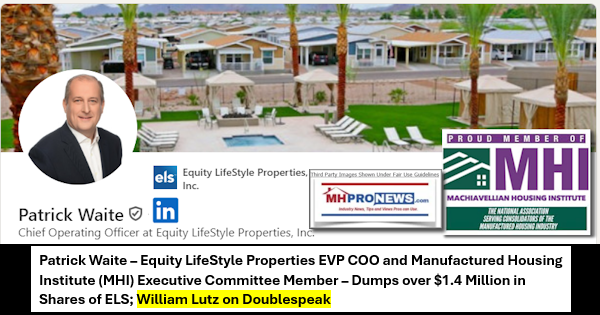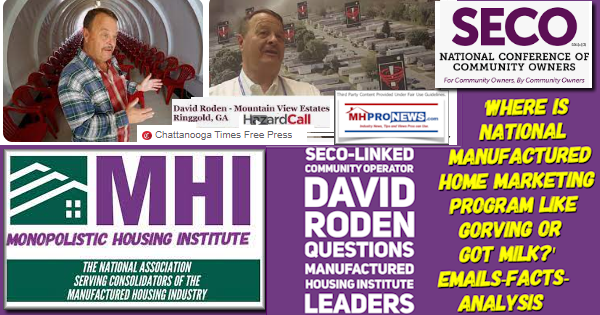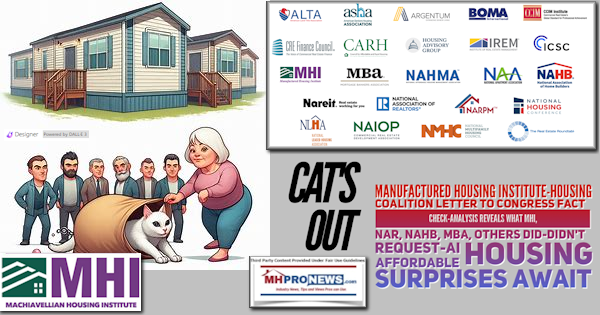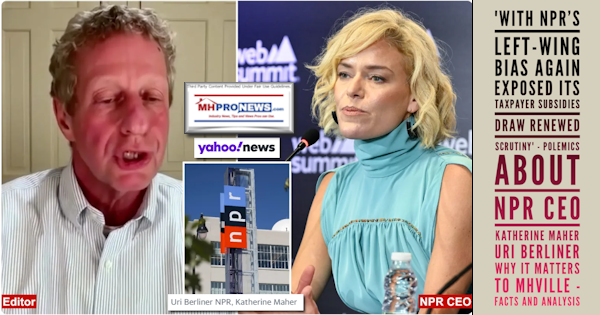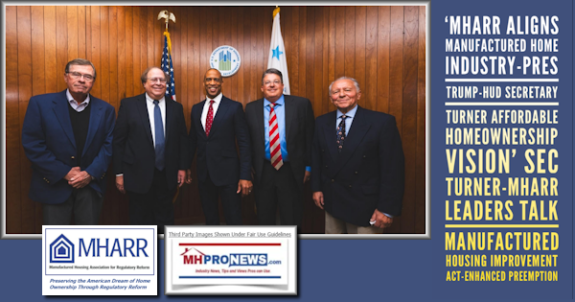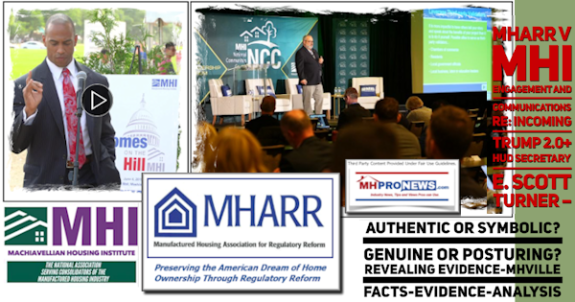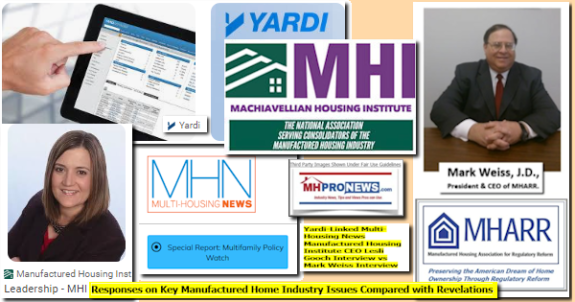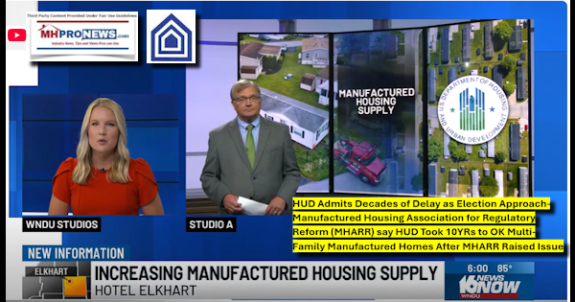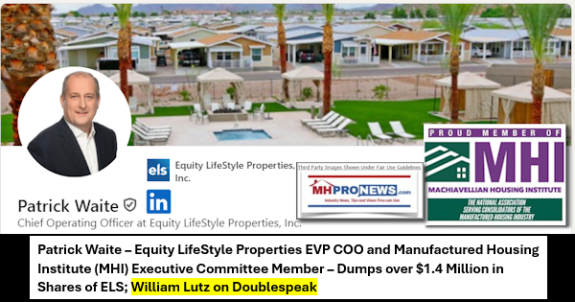Let’s begin by stating the obvious. We have and do support the good things that MHI does. But to paraphrase what Teddy Roosevelt said, it would be wrong – disloyal – not to oppose and expose the latest unforced MHI staff error. It’s being done for the sake of the many.

It would be wrong to allow MHI members – including those who mistakenly support those staffers who periodically make such blunders – to allow the MH Industry at large, as well as MHI members, to suffer the potentially harmful outcomes of yet another periodic error that flows from certain paid MHI staffers.
This one could be legally costly.
Crisp Writing…
…with notable and risky errors…
The MHI StatePoint advertorials are an example of how the road to hell can be paved by good intentions. We won’t recount at this time all of the tactical and strategic errors involved in this “campaign” in terms of MHI’s credibility regarding their messaging.

What we will do is point out a specific, serious error. It’s serious because of the legal/liability ramifications.
We checked this concern out with several MH Industry attorneys. They who won’t go public, at least not at this time. But that really isn’t necessary. Because common sense is why this was brought to our attention.

Common sense should have told top MHI staff that what was being sent out under Richard “Dick” Jennison’s name was an unforced error that could lead in time to litigation against the association.
The Problematic Statement in its context, & Why It’s an Issue
This issue boils down to one sentence, but it is going to be shown below in its context.
“It’s important to remember that the affordability of manufactured homes is not a product of lesser quality, but rather the efficient way building materials are produced, a savings that is passed on directly to the homebuyer,” says Jennison. “Furthermore, they appreciate in value, just like site-built homes.”
No qualifiers! Just “...they appreciate in value…”
Unbelievable…

For those in the MHC sector or other MH industry pros who know Ishbel Dickens, Carla Burr or others like them – can you imagine what they could publicly do to embarrass MHI with that line from the association’s CEO?
Leadership may or may not let this slide. But we as pro-industry trade publishers will not stay silent when MHI’s staffers may be leading the industry into what could be the next, highly avoidable, Seattle Times/CPI style issue.
The Legal View

One of the attorneys asked about this – an MH industry pro – began his reply by asking tongue-in-cheek, with a wry chuckle, “What do you want the opinion to be?” The lawyer pressed on to what most know, you can find an attorney to agree and then attack-or-defend almost anything.
After the humor, the attorney got serious.
“This is precisely one of the types of statements that we strive to avoid [at their organization]. Without the proper qualifiers, you are opening yourself up to liability.”
Yes, there are possible legal defenses to this scenario.
But so long as one or more aggrieved buyer(s) would swear under oath that they “relied on this appreciation statement from MHI’s president and CEO, Richard Jennison” as part of their purchasing decision, the liability door swings open. The buyer who relies on that misleading statement – thinking that they would without any ifs, ands or buts make money when they sold the home – could after X years if they lost money for whatever reason, claim the grounds for a legal action.

By addressing this rapidly, it could be nipped in the bud. So why not clean up the messaging error ASAP and avoid that risk? Thus, this column.
MHI’s StatePoint Advertorial Series Lacks the Proper Foundation
MH Pros know that a good foundation system is vital for a home. The same is true in messaging. Without the right foundation, these words from Matthew 7:26b-27 spring to mind:
…is like a foolish man who built his house on sand. The rain came down, the streams rose, and the winds blew and beat against that house, and it fell with a great crash.” (NIV)
The MH Industry saw what happened in the 1990s when poorly underwritten-and-documented loans resulted in a bunch of sales, and they were followed by a bunch of repossessions. More than 15 years later, the industry still suffers from the image, regulatory and economic fallout that activity caused manufactured housing.
The concern in this case is similar, but different.
Let’s consider the following scenario.
Imagine that MHI’s efforts – using phrases like the one shown – resulted over time in a lot of sales.
Within a few years, enough people would have sold their home to test the outcome of Jennison’s quoted statement. Odds are that significant numbers of those sellers would, for a variety of reasons, lose money. And then they will likely find media and/or attorneys to help them howl.

Do any of us think that the MH Industry needs such a spike followed by a big dump?
Warning Duty Done

We have spotlighted the latest issue out of MHI’s Arlington offices. There are others.
MHI should correct this unforced error, stop the campaign and regroup on this entire advertorial approach.
Not that advertorials are per-se bad. Done properly, they can have value. But MHI’s approach has numerous flaws.
If they don’t stop it, odds are good that in time, someone will look back and say, who started this MHI advertorial campaign? Why was it allowed to happen?
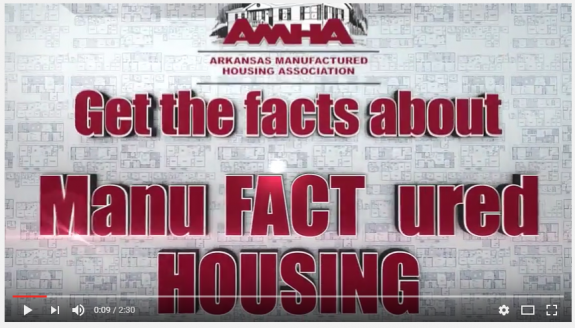
Undermines Legitimate Efforts
This sort of problematic messaging by MHI only undermines the legitimate efforts others in MH — including some state associations, companies, MHLivingNews and MHProNews have undertaken — to do education and image-building the proper way. Namely, education based upon the truth and reality.
We as MH industry pros don’t need to exaggerate or spin the truth in order to sell more homes.
We have a great product, and it stands on its own merits. We have great services too. Our lenders don’t need apologize, but MH chattel lending does need to be properly explained and expressed. The majority of communities don’t need to apologize; they also offer a vital and positive service – as a planned Daily Business News post will soon spotlight.
We have held — and may continue to hold — certain cards that we’d rather not have to play on the MHI/staffers issue.
Close observers will note the following. Many of these staff-related issues revolve around MHI communications combined with questionable judgement. There is a pattern. Is it intentional? Is it just sloppy?
Does it matter what the motivations or causes are, when they occur periodically, are problematic and avoidable?

When a quarterback tosses a number of interceptions, gets few if any touchdowns, in the pros, they get benched, traded or terminated. Shouldn’t a national MH association seeking to score points for the industry and its members have a similar standard?
A few want to blame the messenger for making candid observations, but the sportscaster or play-by-play announcer who doesn’t make candid observations would be failing his duties as a professional. The same holds true for an MH industry trade journalist; it’s our duty to call it as we see it too. “We Provide, You Decide.” ©
Photo and credit; Philadelphia Eagles head coach Chip Kelly, left, talks with quarterback Sam Bradford during the second half of an NFL football game against the New Orleans Saints, Sunday, Oct. 11, 2015, in Philadelphia. (AP Photo/Michael Perez – USA Today)
What are the possible resolutions?
Why not have certain people own this and prior mistakes, apologize for the sake of the industry and then step aside?
Or barring that, why shouldn’t they be asked by their superiors to leave? ##

